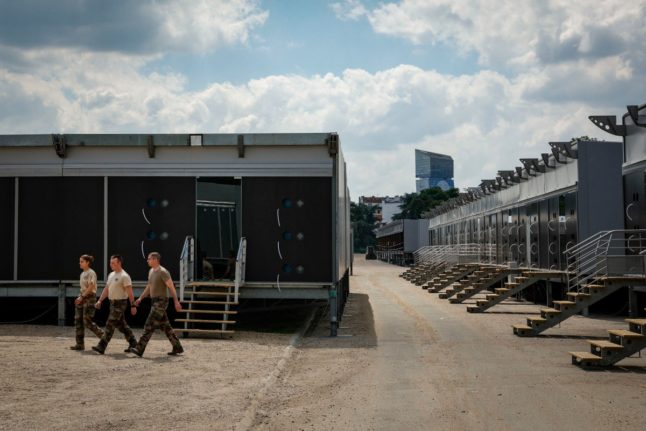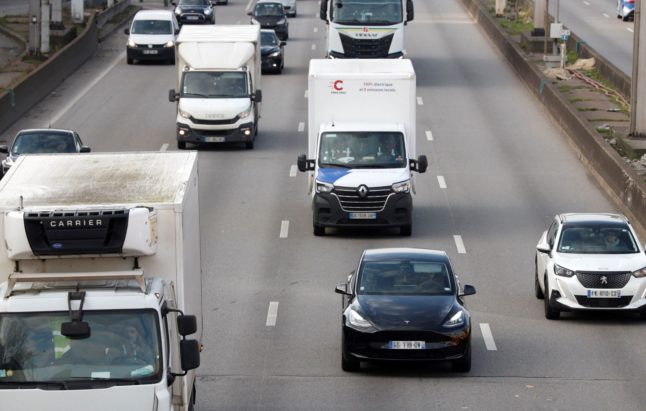Row upon row of temporary barracks have risen up in the Bois de Vincennes in eastern Paris where the Foire du Trône fairground once stood, green army bunk beds and massive mess halls for 4,500 troops replacing merry-go-rounds and candyfloss.
Construction of the camp is being held to a record deadline of 65 days, with the first soldiers due to arrive on July 3rd.
Thirteen days later, they will be guarding the showpiece opening ceremony of the 2024 Olympics along a six-kilometre stretch of the River Seine – the focus of persistent security worries.
“We’re on schedule,” insisted Denis Lesaffre from the Economat des Armees, a logistics partner of the armed forces which is managing the work.
In all, 18,000 military personnel will be on hand to provide security for the Games, which will last from July 26th to August 11th.
They will provide support for 45,000 members of the internal security forces, police and gendarmerie, along with a number of private security guards ranging between 18,000 and 22,000 a day.
Though it may compare in scale to the camps that were built when Nazi boots still stood on French soil, its amenities would be rather alien to the soldiers of the time.
“In 1945, we were building camps of tents,” Commissar General Philippe Pourque told AFP.
“In 2024, it’s a permanent structure with facilities that were unimaginable 50 years ago: WiFi, air conditioning,” Pourque said.
Such amenities were “essential to ensure that our soldiers are able to cope” during the Olympics, he added, calling the standard “almost superior to those of our deployments in our theatres of operation abroad.”
The last major camp set up by the French armed forces in recent years was in Gao, Mali.
Up to 2,000 men were deployed there in the middle of the desert as part of the anti-jihadist Operation Barkhane, before their departure in 2022.
A city within a city, the camp boasts rooms with space for up to 18 soldiers, plumbing connected to the Paris network and a weightlifting gym, as well as three bars with beer on tap – but no hard liquor or wine.
The soldiers’ main mission will be to carry out patrols, covering around 20 kilometres on each outing while carrying around 20 kilos of equipment on their backs.
In the event of a crisis, they must be ready to deploy within 30 minutes.
The biggest worries are “the terrorist threat, drones, and the protest threat, cyber attacks”, according Christophe Abad, the military commander for the Paris region.
The camp is named after Corporal Alain Mimoun, who joined the army aged 18 and went on to become one of France’s greatest athletes, winning Olympic medals in 1948, 1952 and 1956 on the track and in the marathon.
At the request of the heritage and environment departments, the 10-hectare site is fenced off and is designed to blend in to the landscape.
No building exceeds one storey in height, and each one is set back at least two metres away from protected trees.
Even the design of the canteen reflects the surrounding pines, beeches and chestnuts.
Spread over 5,000 square metres, the canteen has seats for 2,100 hungry soldiers who will consume tonnes of food over the course of the Olympics.



 Please whitelist us to continue reading.
Please whitelist us to continue reading.
Member comments